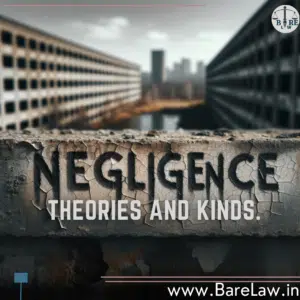Simplifying Your Life & Law | Legal Drafting services

One of the leading areas in India is Property law and family-related issues over the rights of one’s property. In other words, it comes under the broad category of family-related property issues. Even though the law is slightly static in nature, when the society evolves, various aspects and the relevant issues pop up in law, which is quite known to everyone. One such aspect has been discussed in a case recently by the Kerala High court. This case dealt with the issue of family property but has turned to decide that the son-in-law has no right in any manner to the property of the father-in-law. This article will look into this aspect and the related case laws as well.
Kerala High Court on Father-in-law’s Property
Let us look into this recent case that is in line with our topic for discussion. It is Davies Raphel v. Hendry Thomas (2021). The Facts of the case is that Mr Hendry Thomas, who was the Plaintiff in the original suit, is 69 years of age and had filed a case for the permanent injunction against his own son-in-law. It was noted that this son-in-law, who was the defendant in the original suit and the appellant in this suit, had been trespassing the schedule property of the Plaintiff, which is of areas around 5 cents of land comprising and belonging to Plaintiff, and the same was also interfered with the peaceful possession against the Plaintiff by the defendant. It is clear that Plaintiff was the owner and had been enjoying such a property.
If we look at how the ownership was created, it was through a gift deed that had been created in his favour by Reverent father, Mr James Nasrath, for the church and on behalf of the church. Once receiving such a property, it was noted that he built a building or a house and had been residing in the same premises along with his family, in which the defendant (son-in-law) was also a member. It is also cleared that the son-in-law had no regard for the right over the property of the father-in-law. As this defendant had been disturbing Plaintiff for so long and had also married the only daughter of Plaintiff, through which he tries to disturb the Plaintiff. This made Plaintiff file a suit against the defendant.
The trial court held in favour of the Plaintiff and was also held that he would be the rightful owner of the said property and the son-in-law had no right in interfering with the same. Defendant’s appeal was also rejected by the first appellate court. In furtherance, he sought Kerala High court.
Contentions:
On the one hand, the learned counsel for the appellant argued that the appellant is living in the premises of the property alleged, and he has no other place to reside. In that way, they contended that the verdicts of lower courts were wrong. They also stated that the property belongs to the family and not only to the father-in-law. The orders of the lower court are not maintainable. So, it was also stated and concluded that the appellant has the right to reside in the property of the father-in-law. This was the main question that the court had to decide.
On the other hand, the respondent argued that the fact that the respondent is the owner and has possession of the same had been proved by the respondent. This would make his claim valid and hence state that the appellant would not have any right in any manner over the possession of the Plaintiff’s property.
Decision:
They relied on the Nair Service Society ltd case, where the Supreme Court observed the principle of possession is good against all but the true owner. According to this principle, any person who is in possession of any property and has been exercising all the rights that have been ordinarily used by any owner, then such a person shall be assumed to be the owner, and the rights of ownership will give him good over all other persons.
Relying on the same, the court held that the son-in-law, in this case, shall not contend that he has the right to reside etc., over the alleged property of the father-in-law. Thus, the appellant’s suit was dismissed.
Analysis:
Let us discuss the importance of this verdict and the observations in parts. Firstly, in the general sense, looking into family laws on this aspect, the Hindu Succession Act, 1956 never talks about the rights of a son-in-law in the property of a father-in-law. Nowhere in the act have the words been mentioned at all. Classes of heirs also do not speak about the rights of the same. So, from a legal point and in case of the Hindu law, no right has been mentioned.
What the verdict states are no right to reside also, unlike other rights such as succession or anything or even possession. The only ground on which the right to reside was rejected was based on the behaviour of the defendant (son-in-law). As per section 52 of the Indian Evidence act, such behaviour shall not be taken as a piece of evidence when it comes to civil cases. So, such a contention would never stay at all. This should be a point for discussion.
When it comes to son-in-law and father-in-law, no family law would be possible to connect them for the purpose of the property, unless there is an express provision or an agreement to connect them for the purpose of rights over the property. From a social perspective, such contention would be a danger as this would also disregard the daughter or son of the father-in-law who is involved in this case.
But, from the legal and property rights perspective, it is valid in nature if a person proves that he is the owner and has possession over the same. Property rights contain some bundle of rights along with it such as possessory rights, assignment rights, transferability rights etc. so, a right could be created in favour of son-in-law.
Conclusion:
Having seen the above contentions and the decisions, it should be made clear that this verdict might result in redundancy as it is general in nature and not specifies how such a right cannot be given and what are the circumstances. Unless this is clear and hence, the son-in-law would have no right in any manner over the father-in-law’s property.
You may also like to read:
-
04 Jul 2021 Know Your LawNegligence: theories and kinds.
-
11 Sep 2021 Know Your LawSuicide and Mental Health laws
-
28 May 2021 OpinionIs Capital Punishment against the principle of Natural Justice?
-
02 Aug 2021 Legal AffairsThe Legal aspects of Raj Kundra’s Case
-
06 Oct 2021 Legal AffairsAryan Khan’s Narcotics case – Legality
-
07 Oct 2021 Legal AffairsNDPA case against Aryan Khan





